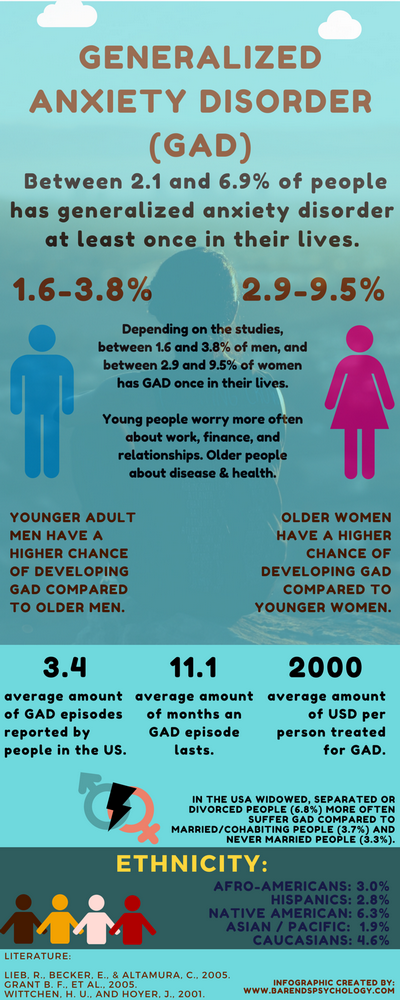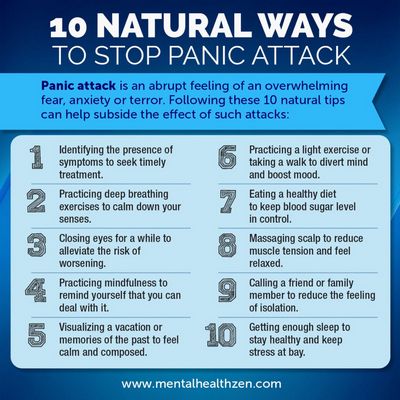Treatment Options That Can Help Treat a Panic Attack
Panic attacks are usually more severe than normal anxiety attacks.

They also come at out of nowhere, while normal anxiety attacks can be associated with a cause or trigger.
Although panic attack symptoms are similar to those of an anxiety disorder, it is important to understand that panic attacks are not the same as regular anxiety disorders. While there may be some similarities, they are not caused by anxiety or depression and they do not occur suddenly.
A panic attack is something that begins in the presence of an actual fear or concern, but that causes the body to experience symptoms of anxiety and fear, such as shortness of breath, shaking, chest pain, dizziness and nausea. These symptoms are commonly associated with anxiety and stress, but it is also possible for them to develop on their own without a trigger and for no apparent reason.
In order to successfully treat a panic attack, it is crucial to understand what triggers the episodes. This means identifying the real fear and anxiety, as well as the real causes for that fear and anxiety. Once you have determined these two things, then it is much easier to treat your panic attacks and the anxiety that accompany them.
If you feel you are having a panic attack, it is important to quickly determine whether or not you are having a full-blown attack or if it is a simple anxiety episode.

If it is a panic attack, then the first step is to try to calm yourself down and prevent the attack from occurring. If it is a generalized anxiety episode, then you should make an appointment with your doctor to find out what the true cause is. In most cases, it is anxiety related and the causes can be alleviated by certain techniques, such as relaxation exercises, meditation and positive thinking.
If you want to successfully treat a panic attack, the next step is to find out if there is a relationship between the cause and the symptoms that you are experiencing. You need to learn what your true cause is in order to properly treat your panic attack. In most cases, it is anxiety related, so you should look into treatment options that will help alleviate this problem and lessen the frequency and severity of your panic attacks.
Once you have determined that you are having an attack, the next step is to learn how to stop the attack from happening in the first place.

There are many ways that you can reduce the symptoms of a panic attack, such as breathing exercises, positive thinking techniques, meditation and positive reinforcement, and even exercise. If you feel that you are having a panic attack, try to find an exercise routine to help alleviate the symptoms and the impact it has on you.
Once you have found an exercise routine that you can work with, the key is to stick to the routine until the attack passes. In time, you will find that the attacks will become less frequent and therefore will be easier to treat.
Another way to effectively treat your panic attack is to learn how to recognize the triggers that set off the attacks. Panic attacks may happen for no apparent reason. In order to properly deal with them, you must learn to identify the triggers and learn to deal with the anxiety related to those triggers.

Once you know what triggers your attacks, it is easier to effectively treat them and prevent them from occurring in the future.
Many times, the anxiety associated with attacks comes from phobias. For example, someone may have an overwhelming fear of flying. Learning how to control your panic attacks will make it easier to deal with these fears and anxiety related to them so that you do not have to suffer through an anxiety attack while flying.
If you are afraid of flying, you should consider taking some classes to learn how to overcome your fear of flying. Once you learn to manage your panic attacks and anxiety around flying, you can then teach others how to avoid a similar situation when they fly. This way, you can help those who are afraid of flying get on their planes with ease.
Finally, there are many other effective ways to deal with panic attacks and generalized anxiety, but in order to effectively treat them, you must first learn the true causes for them and learn how to deal with the symptoms. Learning how to handle these problems will allow you to successfully treat them and reduce the frequency of their occurrence.